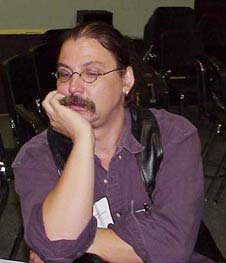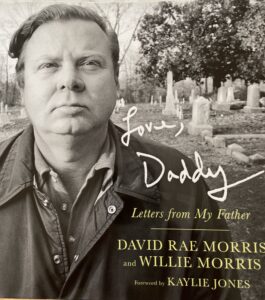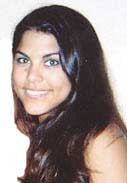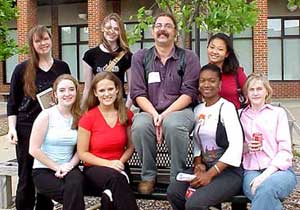Major Works
- Love, Daddy: Letters from My Father (2022)
- My Mississippi (2002)
- Contesting the Super Bowl (Routledge, 1997)
A Biography of David Rae Morris
by Shelley Holcomb (SHS)
David Rae Morris was born on November 1, 1959 to Willie Morris, a well-known writer, and Celia Ann Buchan in England while his father was on a Rhodes scholarship to Oxford University. David grew up in New York City. In his childhood, David was often taken to visit his father’s hometown, Yazoo City, Mississippi (Morris 105).
At an early age, while David was still in high school, he became interested in photography (“David Rae Morris: Photographer”). By age nineteen, David Rae Morris already had a few photographs published. After graduating from high school, David attended Hampshire College in Amherst, Massachusetts. At this time David proposed to his father the idea that they collaborate on a book about Mississippi, but David and his father did not discuss this proposal again for more than twenty years (Morris 105). David Rae Morris earned a Bachelors in Art in photography and theater design from Hampshire College (“David Rae Morris: Photographer”). At twenty-three, he had already had a number of publications and exhibitions.
A year after he graduated from Hampshire, David moved to Forest, Mississippi, and worked for Sid Salter at the Scott County Times. In the following years, he moved on to work for daily newspapers in Greenville and in Vicksburg the Vicksburg Evening Post before leaving Mississippi in 1987 for a job in Tennessee and later graduate school in Minnesota (Morris 105). From the University of Minnesota, David Rae Morris earned a Masters in Art in journalism and mass communications. After finishing graduate school, he became an assistant photographer for the Minnesota state senate for several months. In the fall of 1994, he and his partner, Susanne B. Dietzel, decided to move to New Orleans, Louisiana.
In 1998, David brought up the proposal once again of collaborating with his father so that two generations would be represented as they examine the Mississippi of today through different art forms: the written word and the photograph. David and his father began working on this book, which later became My Mississippi. Unfortunately, on August 2, 1999, David Rae Morris’s father, Willie Morris died, and the book came to a halt. The book was finally published in 2000 with the help of David Rae Morris’s stepmother, JoAnne Prichard Morris (Morris 106).
Morris’s photographs have appeared in Time, Newsweek, USA Today, and The New York Times. He is currently still living in New Orleans, Louisiana, with his partner. He is primarily doing day-to-day freelance work for various national newspapers, such as USA Today.
David Rae Morris’s latest book is Love, Daddy: Letters from My Father, published in 2022 by University Press of Mississippi. Kaylie Jones has written the foreword. The inside cover states that “Love, Daddy: Letters From My Father examines the complexities of father-and-son relationships through letters and photographs. Willie Morris, a well-known Mississippi writer, wrote scores of letters to his only son, David Rae Morris, from the mid-1970’s until Willie’s death in 1999. The collection begins in 1976 and continues for twenty years. According to William Ferris, the letters and David’s photographs “draw us into a world that is at one painfully familiar and hauntingly strange.” W. Ralph Eubanks says that the book looks back “in letters and photographs with grace, elegance, and humility, free of bitterness.” The book was published by University Press of Mississippi.
Reviews
A Review of My Mississippi
by Shelley Holcomb (SHS)
The book My Mississippi was written by Willie Morris and his son, David Rae Morris, took the photographs for the book. This father and son collaboration brings Mississippi to life and captures every sight and sound of the state. Willie Morris’s part of the book describes the land, the people, and the history of Mississippi. Willie Morris makes a clear distinction from who he calls “Mississippians” and everyone else. In one way, Willie Morris’s writings could be considered an exceptional and one-of-a-kind guide to Mississippi. In another way, his writings about Mississippi could be considered the perspective of only Willie Morris. Anyone from Mississippi could appreciate and relate to Willie Morris’s book, My Mississippi. Anyone who is interested in learning about Mississippi, the different cultures it represents, or the historical land would love reading this book.
David Rae Morris’s part of the book, My Mississippi, is the photographic part of the book called “Look Away.” These photographs are colorful and creative pictures that illustrate and bring to life the people and lands that his father, Willie Morris, writes about. These cleverly put together photographs add a visual interpretation of the written part of the book. Unfortunately, when looking at these photographs, I feel that they represent all the stereotypes that people who are not from Mississippi have given to the state of Mississippi. Pictures of cotton, rundown buildings, poor churches, toothless people, and so-called “Southern belles” seem almost a reassurance to the stereotypical assumptions of those ignorant of the many aspects of Mississippi. For example, there is only one picture with a black person and a white person interacting, which looks as if there has been no transformation in Mississippi, a state with a history of racial controversies. Some pictures seemed repetitive. More of Mississippi’s lesser known cultures could have been included. Although some photographs were vexatious, I could not help but be captivated by some of the vivid, fascinating, and unique photographs. I truly did enjoy looking at these photographs, and I recommend this book to anyone.
An Interview with David Rae Morris (2003)
by Shelley Holcomb (SHS)
Who is/are your favorite author(s)?
I am actually not as avid a reader as one might think. As for fiction, favorites tend to be pretty standard. I grew up reading John Steinbeck, and James Jones. But more recently have discovered Melville (Moby Dick),although I have never been able to finish it!); also Welty, Tom Wolfe, and Tom Piazza. In terms of non-fiction, I love biographies. I read both volumes of Peter Goralnick’s bio of Elvis.
Who is/are your favorite photographer(s)?
I have many. Most are documentary photographers. First and foremost, Robert Frank. His 1955 book, The Americans, influenced a while generation of photographers, who in turn influenced me. Then there is Gary Winogran, Lee Friedlander, Berncie Abbott, Walker Evans, Susan Maiselas…the list could go on and on.
What is your biggest regret in life?
That I did not learn to play the piano (I have recently acquired my grandmother’s baby grand and it sits in the parlor with no one to play it!)
Did you ever before collaborate with your father?
We did a lot of small stuff together. He would write an article for a newspaper or magazine and they would call me to take the pictures. But nothing on the scale of My Mississippi.
Are you working on any projects right now?
I am mostly doing day-to-day freelance work for various national newspapers, such as USA Today. I do have several personal projects on the back burner, but I have not been able to muster the necessary energy to get them done…..I’m still suffering from a kind of hangover from My Mississippi.
What advice would you give to young photographers?
Don’t abandon film (don’t be completely won over by the advent of digital photography), and shoot, shoot, shoot.
In what ways has living in Mississippi influenced your work?
Living in Mississippi was an on-going reality check. It was the most fertile place I have ever lived, and some of the most important work of my life came out of it. Mississippi is a very complex place, and I have always tried to capture it and all the complexities….
Would you ever again collaborate with another author?
Certainly……Actually I have. I worked on a book called Contesting the Super Bowl by Dona Schwartz (Routledge, 1997). It was a group effort to document Super Bowl XXVI in Minneapolis.
What is the date you were born?
November 1st, 1959. I was born about seven hours after Billy Cannon made his famous 89 yard punt return for LSU to beat Ole Miss in Baton Rouge. It’s also observed in New Orleans as All Saints Day……
Fri, 3 Jan 2003
Who was your biggest influence growing up?
I had several teachers, both in elementary school and high school who had a great influence on me and my later work. But in general, growing up in New York City in the 1960s and early 70s had more to do with who I became. There was revolution in the air, and it was going on all around me. The Vietnam war and the Civil Rights movement weighed heavily on the national consciousness. It was from that insanity that much of my creative vision and spirit emerged.
Who/what is your biggest influence for your photography?
When I was 15, I began attending lectures and night classes at the International Center of Photography. Although I really didn’t know what I was doing, my work at the ICP became the foundation for what would come years later. Likewise, after I had graduated college and moved to Mississippi in 1983, I went to work for a small weekly newspaper (The Scott County Times). It was there I learned everything I would ever have to know about working for a newspaper. And these skills easily translated into tools later in life.
What was your primary reason for collaborating on the book My Mississippi?
I had always wanted to work on a big project with him. And I had always wanted to do a big project on Mississippi.
What was your childhood like with your father?
My parent divorced when I was nine. In those early years, after he went to work at Harper’s Magazine, I didn’t see him very much. After the divorce, I went to visit him every other weekend, riding the subway alone to his office on a Friday afternoon. He took me to basketball games and baseball games, to movies, bowling, and all around town. We had fun. He left Harpers when I was eleven and moved to the Eastern end of Long Island. I would spend my summers with him.
Related Websites
- Read the University of Mississippi Press page about David Rae Morris
- David Rae Morris’s photography website
Bibliography
- “David Rae Morris: Photographer.” Southside Gallery. 4 December 2002. <http://www.southsideoxford.com/photographers/david_rae_morris/>.
- Morris, Willie. My Mississippi. University Press of Mississippi. Jackson, MS. 2000.
- “My Mississippi.” University Press of Mississippi. 4 December 2002. <http://www.upress.state.ms.us/catalog/fall2000/my_mississippi.html>.
- Morris, David Rae. Email interview. 12 December 2002.
- Morris, David Rae. Email interview. 3 January 2003.





